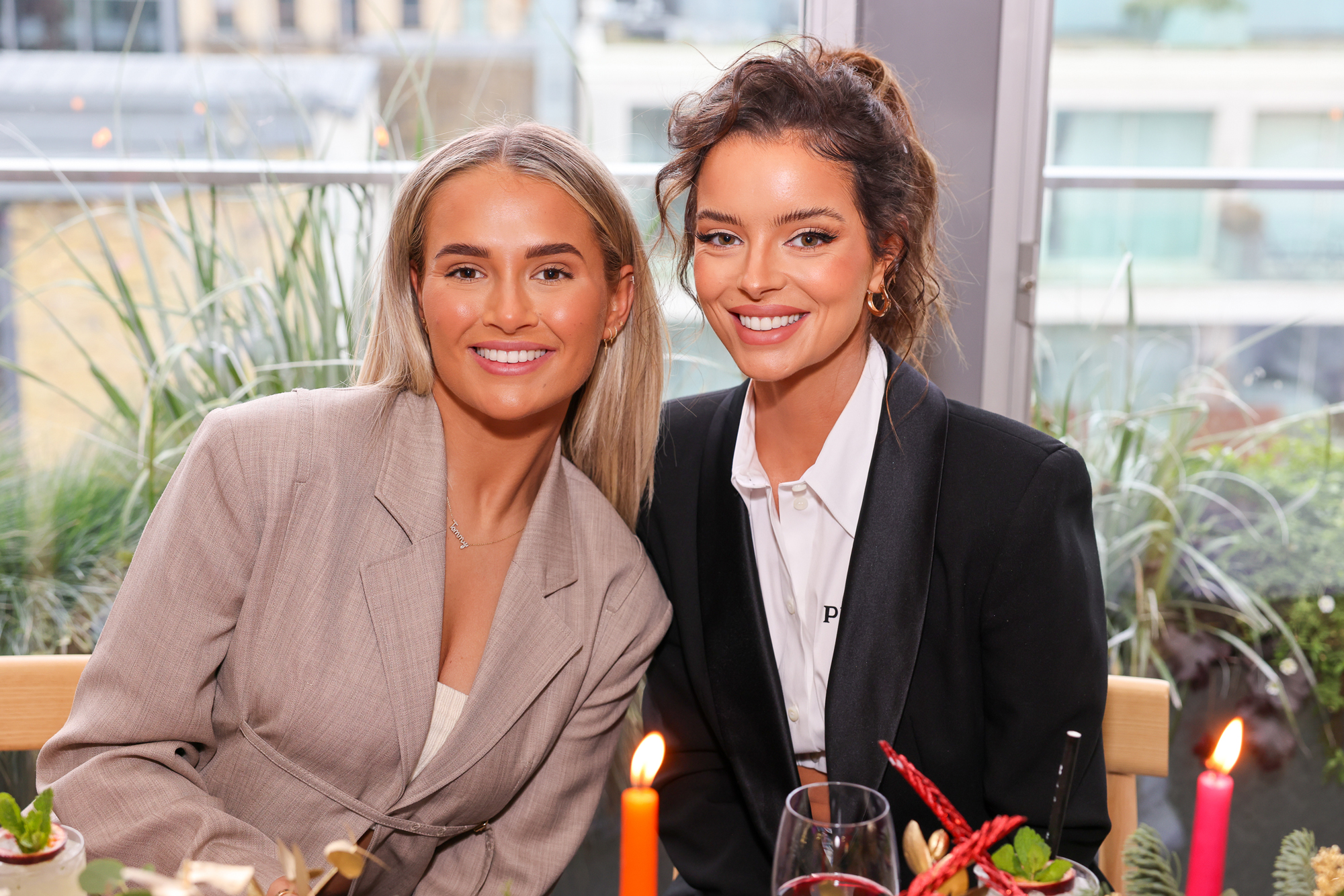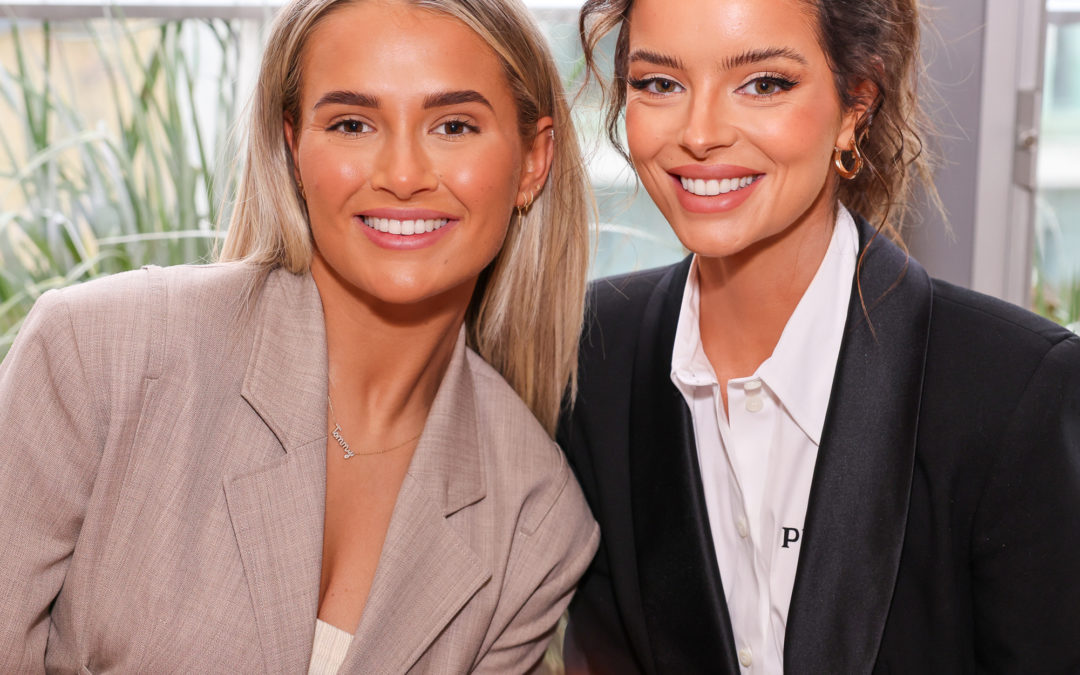Love Island Has Lost Its Influencer Power – Here’s What That Means
WORDS: Aaliyah Harry

As the curtain closes on Love Island’s 10th series, many doubted whether the hit dating show could sustain its popularity. Outside of the viewing figures, could cupid produce a more successful crop of couples that lasted beyond a few months? Could any of these characters break through to become mainstream celebs? And would the six-figure brand deals the show became known for proffering on its contestants ever be on the table again?
Whilst the show’s viewership has decreased (this summer the show launched with 1.7m viewers across all devices compared to last summer’s 2.4 million) many fans will agree the show is undergoing some changes for the better. The addition of Maya Jama as host, a stellar line up of Islanders and new twists and turns breathed new life into the show’s original format. Only time will tell when it comes to true love. But it’s already clear the Islanders’ influence on the social media landscape is dwindling.
With each new series it has become more difficult for the cast to make an impact on social media and they’re leaving the villa with a decreasing number of Instagram followers. Winter 2023 winners Sanam Harrinanan and Kai Fagan both left with 250k followers and have since worked their way up to 428k and 399k respectively. At the time of writing, winners Jess Harding and Sammy Root had 371k and 142k followers respectively. For context, series 5 winner Amber Gill left the show with 2.2 million followers back in 2019.
The point of the show is ostensibly to find love – not Instagram followers. But, in reality, appearing on the show became known for creating a ready-made influencer career and a new crop of celebs that flooded the nation’s feeds.
It’s understandable why some might strive for that. Former islander Molly-Mae Hague (8million followers) was reportedly paid £400k/month for her role as Pretty Little Thing’s Creative Director and estimates say she now earns as much as £20k a post. Meanwhile, someone with around 250k followers is a lot less of an attractive prospect for brands – and estimates for how much they can charge for a post range from a few hundred pounds to £6k.
Whether it’s down to lower viewing figures, a change in the nation’s mood (from the cost of living crisis to the rise of deinfluencing) or saturation, it’s clear this series’ crop of islanders will need to put in a lot more graft to attain fame and fortune.
A number of series 10 islanders who left the villa just weeks ago have already revealed that they have returned to their day jobs already – something that used to make headline news when it happened. George Fensom (who was in the starting line-up but was the first to be dumped from the Island) quit his job in business sales to go into the villa and while he’s still pursuing a TV career with new management, is currently working as a delivery driver. ‘As I’m speaking to you right now, I’ve got a load of parcels in my boot to deliver,’ George says. ‘Everyone seems to be quite shocked that I’m doing a normal job but I’m just doing this at the moment to get me by.’
For Winter Love Island 2023, producers trialled a social media ban that continued for the latest series
He adds: ‘With Love Island you do have this preconception that everything’s going to be “Go, go go” for everybody straight away, but actually I’ve realised now that some people make it quicker than others.
‘Maybe I’m one of the slow burners which might be a good thing because it will help keep me grounded.’
Rachel Finni was a season seven bombshell – and returned to working in luxury hotel sales just five months after appearing on the show. ‘I came out the villa with only a couple thousand followers on Instagram (she currently has 85.9k) and given my portrayal on the show I wasn’t exactly a fan favourite enough to amass a tonne of followers and start a laid-back influencer life.’
‘I never wanted to be an influencer, but I knew going on the show would lead me down that path and honestly, it’s such a blessing,’ she adds. Rachel’s day to day life is focused on sales and she is happy with her life. She says, ‘Let’s face it I didn’t exactly gain a million followers. However, to this day, I do a few collabs here and there.’
For Winter Love Island 2023, producers trialled a social media ban that continued for the latest series. Islanders must now pause their social media accounts for the duration of their time on the show, in a bid to protect them and their families from online abuse and trolling. Whilst it seems to have reduced some trolling, it could be said the ban has stunted social growth, meaning these islanders will never be able to reach the heights of past Islanders like Molly-Mae, Olivia Atwood and Kem Cetinay.
Tanyel Revan, a hairdresser from North London, was in the original Winter 2023 line-up – the first cohort to feel the effects of the social media ban. ‘I’m 50/50 when it comes to the ban,’ she says. ‘I think it does help certain people but for me personally, no.’ She adds: ‘I’m so thick-skinned that I wouldn’t have cared what people said anyway. Yes, maybe if I got a lot of hate it could have been different – I probably would have been a little bit down but then I would have been able to move past it.’
She added: ‘I do think it protects us slightly when it comes to mental health because I don’t think we see as much trolling. If anything, the ban protects our families more than it protects us really… It only helps us to a certain extent. If you’re going to get hated, people are still going to comment all over Twitter. You will see some of it – I just think you have to have a strong mindset.’
Tanyel is honest about her disappointment around social following not being at the levels they previously were. ‘I think for me, having more of a following would have helped my career and that’s just me being honest – because if I didn’t find love (which I didn’t on the show) what was I going to get out of it?’ she says. ‘I think allowing our families to run our accounts would have boosted followers and we wouldn’t have to work as hard now. For our series and future ones, islanders will have to work a lot harder to get that large following because it will never be the same.
‘The lack of visibility with brands should show that business wise it’s not a good move for these Islanders.’
‘I have a hairdressing business but I 100% also went in with the mindset that I could also do influencing. Not one person in there went on Love Island just for love. If they say that then they’re probably not being honest. I knew I was going on the show for the experience and everything I can get from it – and if I find love it’s a bonus.’
George reveals the slow start to his media career has affected him: ‘I’ve been quite down about it if I’m honest. Just because I get quite stressed out anyway because I’m a very productive person. So, when things don’t hit off from the get-go – I don’t really know how to how to handle it.’
Rachel says she did get some online abuse (‘The hate I got was mainly about how horrible my hair was, how bad I was at doing my own make up and even being called a failure as a black woman,’ she says) but is clear on how the ban has affected the latest islanders. ‘The winners from the winter series haven’t done any big deals and the finalists right now don’t even have 500k followers,’ she said. ‘The lack of visibility with brands should show that business wise it’s not a good move for these Islanders.’
‘The Molly-Mae effect’ has been coined as the term to describe the height of Love Island Influencer success. The series five contestant came second alongside her boxer boyfriend Tommy Fury and left the show with 2.5 million followers. She then went on to secure a lucrative six-figure PrettyLittleThing Ambassador deal which then turned into that Creative Director position. Since then, she has amassed 7.6 million Instagram followers and 1.8 million YouTube followers. Her influence, especially amongst women aged 16-25, is unquestionable.
Last year, when Hague announced she’d found the ‘perfect’ Zara leather jacket that she ‘never takes off,’ the high-street fashion store’s website went into meltdown and the item sold out instantly. On TikTok, hopefuls gave each other tips on securing the jacket during the next restock and eagerly refreshed their emails for updates. Hague is the blueprint to islanders influencer success and many after her tried to replicate it.
New research by Accenture Song shows that these days, that success is probably inimitable no matter how the show does, or controls social media accounts. It showed consumers are turning their back on flashy and unattainable influencer content in favour of authenticity and credibility. Nearly a fifth (19%) of consumers aged 16-24, and a quarter (25%) of consumers 25-24, said they’d unfollowed accounts they felt presented a lifestyle not relatable to them. The cost-of-living crisis is putting many off influencer content as one in five (16%) say they are less likely to watch influencer content. Meanwhile, a fifth (21%) are less likely to be swayed by their content and recommendations, and others are more likely to skip past ad content from influencers (20%). Furthermore, a new era of deinfluencing has emerged, with a third (33%) of consumers aged 16-24 admitting to engaging with ‘deinfluencer’ content on social media since the start of the cost-of-living crisis. More than two thirds (64%) of this age group have decided not to spend with a brand as a direct result.
One thing all the Islanders can all agree on is how helpful ITV have been in protecting their mental health and wellbeing after the show. Tanyel reveals, ‘They give us daily access to a therapist and free therapy sessions for a year. It’s so amazing that that they do that, and we can always talk to someone from ITV.’ But does the vast gulf between the social media winners and losers following Love Island lead to bad feeling?
‘I don’t compare myself,’ says Rachel. ‘They weren’t me and I wasn’t them. I went on Love Island as an individual stupidly and genuinely looking for love in a wonderful experience… 99.9% of islanders before and after me went on it for exposure. They played a game. I didn’t. Not that there’s anything wrong with that – if anything I’m the one at fault. Why did I think I could be wholly myself on a produced television show?’
IMAGE: GETTY

